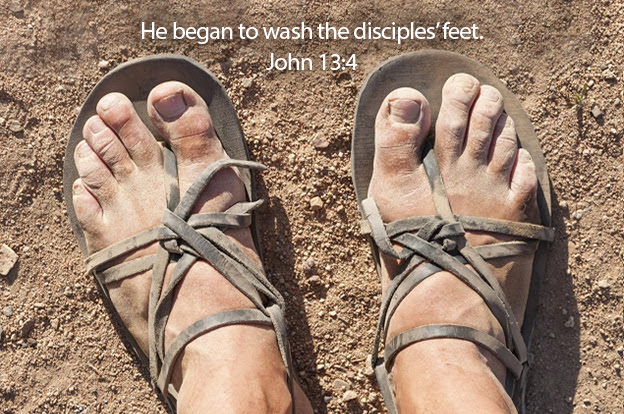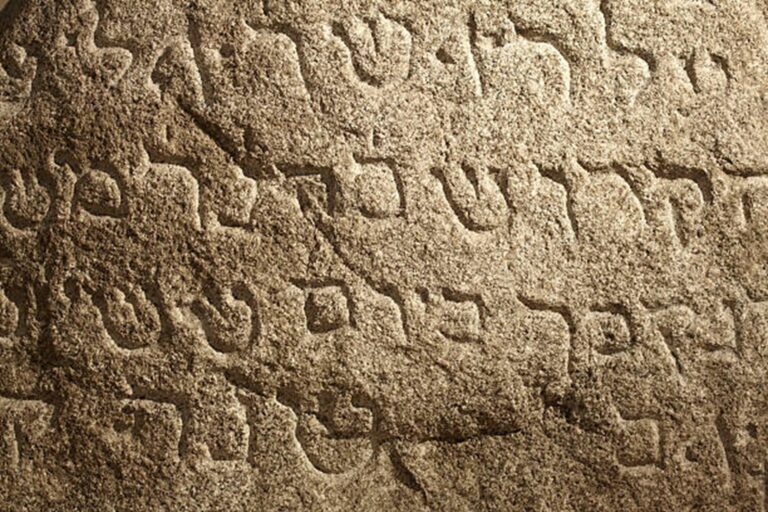A Podunk Kind of Christmas

It’s mindboggling that God would take on human form by incarnating Himself into a woman’s womb.
This makes Jesus 100% human and 100% God.
And that being the case, we might’ve expected the Sovereign Lord to have chosen nobler conditions for His coming into the world.
But everything from His birth, to His death (and all that lies between), teaches us something about who He is and what He came to do.
Though He is the King of Kings, He has a heart for ordinary, broken, messed up people like you and me.
Jesus had to remind some folks, “It is not the healthy who need a doctor, but the sick. I have not come to call the righteous, but sinners to repentance” (Luke 5:31-32).
And that’s a relief for those of us who don’t always have our acts together.
Even before Christ was born into lowly circumstances, His genealogy was meant to put us at ease.
Yes, He descends from kings, and while there are a few good guys in the list, there’s quite a few unsavory, scandalous characters in Jesus’ direct bloodline.
Look closely and you’ll find a liar, a deceiver, and a schemer.
There’s also an adulterer, an idol worshipper, and a prostitute (and she’s a gentile).
The Savior-King’s pedigree doesn’t boast of perfect people with stainless reputations; so it’s safe to say, He’s not expecting that from any of us.
Okay, and how about His choice of Mary?
Just an ordinary girl engaged to a small-town kind of guy who likes to work with wood.
And they’re living in Nazareth—a town that puts the P in Podunk.
People associated Nazareth with contempt (John 1:46).
But God chooses it anyhow.
Why?
He’s saying something, isn’t He?
I hope you see the pattern.
Bethlehem was much the same: just a sleepy, insignificant village, as Micah pointed out in his Christmastime prophesy (5:2).
But the Almighty thought it suitable for The Grand Event: the birth of His Son, the Second Person of the Godhead. The divine Deliverer was delivered, in a stable—not a palace.
And who does God choose to hear “the good news of great joy” first?
The aristocrats?
Nope.
The shepherd-outcasts—they are the ones honored above everyone else on that sacred, holy night.
And eight days later at Christ’s baby dedication there in the temple, the Holy Spirit prophesies through Simeon and Anna.
Why them and not one of the illustrious chief priests, Pharisees or Sadducees (who were all on site)?
It’s amazing because God chooses two people whom the world might describe more like eccentric, elderly nobodies, and yet God reserves the highest honor for them.
And don’t forget about the Twelve—the men Jesus picks to represent Him.
A dozen (forgive me) bungling, uneducated, surly, self-absorbed guys, just trying to eke out a living around a lake called Galilee.
And if that’s not crazy enough, who was the Lord’s target audience?
Those who were down and out—the poor, those in desperate need, helpless and hopeless.
Those who were demonized and tormented, the outcasts.
Those who couldn’t offer anything except brokenness and strife.
Sinners.
Slick scam artists (tax collectors) and sleazy prostitutes—the bottom feeders of society.
But He loved them anyhow, didn’t He?
Which made the onlooking, self-righteous types hate Him all the more.
I don’t know about you, but all of this sets my heart at rest.
Every time I think about the humble way He came into our world, and His relentless attraction to the needy and unlovely, I feel encouraged.
Christmas is a reminder that the self-professed lowly Savior came into our world, the same way we did—surrounded by conflict, suffering and need.
He doesn’t seemed impressed by what’s hip and cool, or by those who ride in limos and are chased by paparazzi.
In fact, Jesus warns us about envying that kind of thing by saying,
“What this world honors is detestable in the sight of God” (Luke 16:15).
Jesus is a different kind of King.
He’s attracted to the weak.
He’s at ease with our brokenness.
He’s not repulsed by a messy life.
We can relax and be who we are—with all our imperfections, and in all our need.
We have Someone who “sympathizes with us in our weakness” and loves us the way we are.





